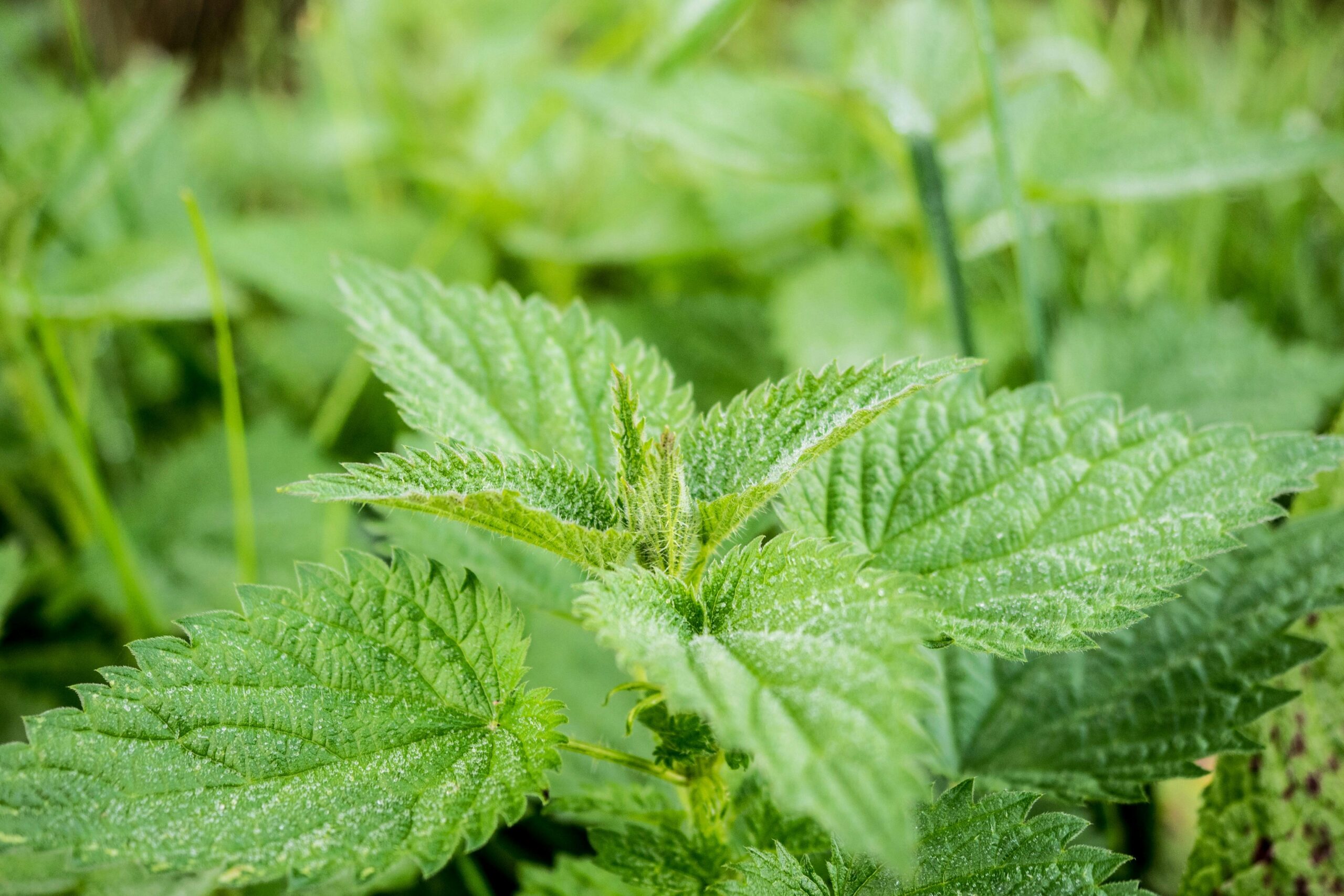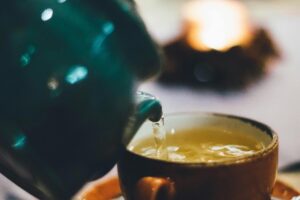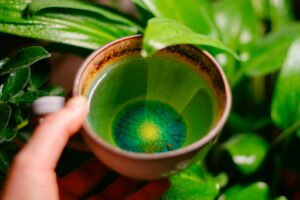Nettle Leaf Health Benefits Explained

There’s a fairly good chance you’ve come across nettles at some point in your life, because they’re pretty common. If you touched said nettle leaf, you probably realized straight away that that might not have been the best idea. Still, if you’re careful about how you handle these curious little plants, you might be surprised to learn that they can be more beneficial than harmful, and can improve many areas of your health. And to think people assume them to be nothing more than annoying weeds!
What Is Nettle Leaf? Where Does Nettle Leaf Come From?
Those who’ve grown up reading Enid Blyton, as I have, will be familiar with the plants known as ‘nettles’. You’ll also know that they are sharp, and can ‘sting’ (though not all kinds do). I’ve always imagined them as thorns, like the kind you see on roses. But actually, nettle leaf looks more like a leaf with spiky edges – and trust me, you don’t want to touch those spikes with your bare hands!
Those tiny spikes inject histamine, as well as other chemicals, which is what gives the stinging nettle its name. There are also thorns on its stem. But despite its unwelcoming exterior, nettle leaf has a plethora of medicinal benefits to offer, if you only take advantage of them. You can find different species in different countries, though it’s native to Europe, Asia, North America and North Africa.
Nettle Leaf Health Benefits Explained

Nettle leaf tea can help allergy symptoms.
One of the most common uses for nettle leaf is to ward off allergies, particularly hay fever. It’s a natural anti-inflammatory and helps to stop a runny nose, sneezing, and itchy eyes. It’s funny; you generally use an anti-histamine to fight off allergies, right? And yet, somehow, the histamine found in nettle leaf has proven itself useful at getting rid of common hay fever symptoms. If you know you’re likely to get allergies, you should start taking nettle leaf tea before allergy season starts, to prevent the symptoms altogether.
Nettle leaf’s anti-inflammatory properties also make it great for people with arthritis or joint pain. You can take it in tea form or even apply it topically for relief. Nettle leaves can also be used to prevent osteoporosis. This is because it contains a mineral known as boron, which helps maintain your body’s calcium levels and thereby naturally strengthens your bones.
As far as diuretics go, nettle leaf is right up there with the best of them. It helps flush out toxins and excess liquid from the body, which cleanses your body and helps you stay in the best of health. It’s also good for your blood circulation in general. It’s loaded with iron and Vitamin C, which go hand in hand at reducing your risk of anemia (lack of red blood cells). Its high levels of potassium help keep your blood flowing through your arteries in a healthy fashion, which is great for your heart and also helps reduce the risk of suffering a stroke.
And last but not least, nettle leaf can also be used to reduce acne. It has antioxidant and antibacterial properties, so this makes perfect sense. Because of these properties, it has the ability to heal other skin blemishes like wounds, scars or even wrinkles.
What Is Nettle Leaf Tea?

Herbal tea has many health advantages.
When you’re sick – particularly with allergies – it’s a great idea to take a hot, soothing tea. It feels so good as the hot steam works its magic to thin your mucus and clear your airways. But there’s something even better for your hay fever than just a hot tea – and that’s a nettle leaf tea.
As I mentioned earlier, nettle leaf works well to fight off symptoms of hay fever. And when you take it in tea form, well, you just can’t ask for a better natural remedy! Next time you feel the sniffles coming on, try out this easy nettle leaf tea recipe and see how fast your runny nose goes running the other way!
A word of caution: take care when collecting fresh nettle leaves! They may look innocent enough, but boy, can they sting! Make sure you’re wearing thick gardening gloves and a long-sleeved shirt that covers all your skin. Use garden shears or strong scissors to cut the nettles.
Ingredients:
1 cup fresh nettle leaves
2 cups water
Raw honey, to taste (optional)
Method:
Place the leaves in a pot together with the water. Bring the pot to the boil, then lower the heat and simmer for around 2 minutes. For a stronger flavor, you can let it steep for longer, around half an hour. Strain the leaves, and add honey to the tea if desired. That’s all there is to it! Too easy.
Nettle Leaf Side Effects Explained
The most obvious side-effect (well, occupational hazard, really) of nettle leaf is, of course, the sting. Touching a nettle leaf with your bare skin is a recipe for disaster, but it shouldn’t be an issue when proper clothing and equipment are used.
Nettle leaf can sometimes cause mild reactions, such as diarrhea, upset stomach, sweating, or hives – but if you use it as directed by your doctor or health care professional, these should not be a problem.
The nettle leaves should not be taken if you have any sort of kidney or bladder issues, unless your doctor has given the OK first. You also shouldn’t take it if you’re diabetic (as it can cause sugar levels to be unbalanced), nor by pregnant women, as it can stimulate menstruation. Otherwise though, nettle leaf is a safe and healthy herbal remedy, albeit with diuretic qualities.
Nettle Leaf For Fertility Explained

Nettle lead may aid fertility.
It might surprise you to know that despite medicine and science being more advanced than they’ve ever been, one in ten couples still struggle with fertility. There are numerous factors that affect a couple’s ability to conceive, including diet and lifestyle habits. Nettle leaf is thought to be beneficial for a woman who is trying to conceive because it strengthens the uterus, which not only increases the likelihood of conceiving but also makes the womb a healthier place for the developing fetus.
Besides this, nettle leaf is also extremely high in minerals such as calcium, potassium, phosphorus, iron, and magnesium, all of which can contribute to your overall health and prepare your body to house a child.
It’s recommended to drink nettle leaf tea every day for a few months before you are ready to conceive. At the same time, it’s also important to be getting enough nutrients from other foods, and to take care of your body as best as you can.
Conclusion
Hay fever, flu, detoxification, fertility – really, who would have expected so many benefits to come from one small little plant? While it’s not one of the most well-known remedies, it’s certainly promising! Nettle leaf is easy to grow and doesn’t require a lot of maintenance – so if it sounds like the kind of plant you could do with more of, you might want to try planting a couple in your garden. You never know just how much it will help!


